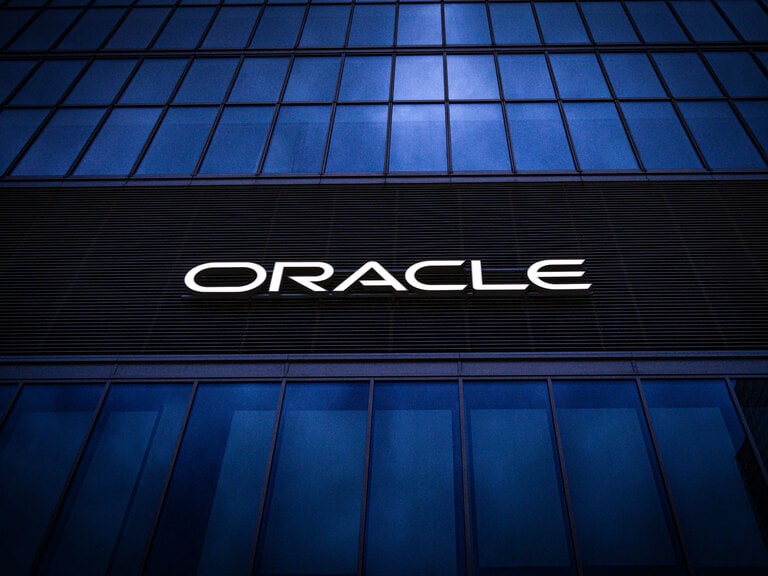According to industry insiders consulted by Opto, the cloud computing market grew fourfold over the five years to 2023, and is still set to double in size over the next four. With the three tier-one incumbents — Amazon, Microsoft and Google — having a solid moat, smaller providers may look to innovations, such as AI and quantum computing, to gain a foothold.
- The cloud market has quadrupled over last five years, says John Dinsdale, chief analyst and research director at SRG.
- Hacks and outages highlight companies’ dependence on the three main providers.
- How to invest in cloud computing: First Trust Cloud Computing ETF offers exposure to stocks within the cloud sector. The fund is up 33.5% in the past six months.
Amazon [AMZN], the largest player in the market, describes cloud computing as “the on-demand delivery of information technology (IT) resources over the internet with pay-as-you-go pricing”. It allows companies to outsource the hosting of their web services to third parties, and to “access technology services, such as computing power, storage and databases, on an as-needed basis from a cloud provider”, rather than buying and maintaining their own data centres and servers.
Amazon’s AWS, Microsoft’s Azure and Alphabet’s [GOOGL] Google Cloud comprise the big three cloud service providers, with a 65% share between them as of Q1 2023, reported Synergy Research Group (SRG) in April.
AWS dominates the market, with a 32% share at the end of the first quarter (Q1) 2023. This was a slight decline from 33% at the beginning of the year.
Meanwhile, Microsoft [MSFT] maintained its 23% share over the same period, according to information technology (IT) market research firm AAG.
John Dinsdale, chief analyst and research director at SRG, explained to Opto why these three players are so preeminent in the space: “To be a market leader requires extremely deep pockets, a long-term commitment from the very top of the company (and all the way down), a global brand that plays well in all regions, operational excellence and a willingness to invest huge amounts of money every quarter of every year.”
According to the SRG report, the tier-two cloud companies with the fastest growth rates are Oracle [ORCL], Snowflake [SNOW], MongoDB [MDB], alongside Huawei and the three main Chinese telcos: Alibaba [9988.HK], Tencent [0700.HK], and Baidu [9888.HK].
Making and breaking the internet
Anthony Ginsberg, founder and CEO of GinsGlobal Index Funds, told Opto: “Cloud is now increasingly the plumbing that underpins all video streaming, online gaming, mobile, 5G, robotics and cybersecurity services.”
The ubiquity and importance of cloud computing is never clearer than when the large providers run into technical issues.
On 13 June, AWS experienced a major outage that took down large swathes of the internet. Among others, Associated Press, Reddit and McDonald’s [MCD] experienced issues with their online services. This was a relatively minor outage compared to another in 2017 — which caused $150m losses to S&P 500 companies — but it highlights the fact that many companies still rely heavily on the platforms of just three major players.
Their critical position makes cloud providers tempting targets for cyber criminals. On 16 June, Microsoft attributed disruptions to its own service earlier in the month to “ongoing DDoS [distributed denial-of-service] activity by the threat actor that Microsoft tracks as Storm-1359”. DDoS attacks effectively overload a host with traffic, making the hosted sites inaccessible. While Storm-1359’s identity is unconfirmed, hacktivist group Anonymous Sudan — which some security professionals believe could be Russian — claimed responsibility for the attack on its Telegram channel.
Elsewhere, two of the internet’s best-known brands are squaring off for a showdown.
According to Platformer, Twitter has refused to renew its contract with Google Cloud, which it signed for $1bn in 2018.
While Twitter hosts many of its own services, it outsources some of its infrastructure to both Google and Amazon. Services dedicated to trust and safety issues, like the removal of child sexual abuse material, or fighting spam, are hosted by Google. Twitter’s non-renewal of the contract could add strain to in-house services that are already struggling since Elon Musk cut into their headcount.
AI boosts Microsoft’s Azure
As in much of the rest of the technology world, the major providers are currently focused on optimising their services to support artificial intelligence (AI). Google announced an expansion to its strategic partnership with HCLTech [HCLTECH.NS] on 11 June, which will see the latter develop products for clients in a range of industries using the suite of generative AI products available on Google Cloud.
“The integration of AI/ML and automation, aimed at scaling customer success, along with the implementation of industry clouds catering to specific sectors, are set to emerge as significant drivers of growth in the near future,” Mayuranki De, research analyst at Global X Funds, told Opto.
This crossover is set to drive gains for the major cloud providers. “Microsoft anticipates that its Azure growth will accelerate by up to 1% in the following quarter, thanks to the AI services offerings launched in collaboration with OpenAI and Nvidia [NVDA],” De added.
Similarly, Amazon’s April launch of Bedrock and Titan incorporated generative AI capabilities into the AWS suite of products. “These initiatives are part of a range of new features introduced by AWS to further enhance their machine learning capabilities,” says De.
Are you finding this content insightful? Leave us some feedback here.
Regulated growth
The cloud computing market has grown rapidly over recent years; as Dinsdale points out, it saw “essentially fourfold growth over a five-year period” between 2018 and 2023.
While Dinsdale’s position limits him from quoting specific figures, he was emphatic that “growth will continue to be strong over the next five years”.
Ginsberg similarly believes the rate of growth will continue to accelerate: the cloud industry is “growing faster than most tech areas” and is “set to double in four years — adding almost $1trn of new revenues”.
One major driver of this growth could be further government cloud contracts, like the $9bn for Joint Warfighting Cloud Compatibility, an IT modernisation project that the Pentagon awarded jointly to Microsoft, Amazon, Google and Oracle in December 2022.
“Highly regulated industries are amongst the fastest adopters of cloud computing now,” Ginsberg told Opto. These include “governments, banks, insurers, big pharma and healthcare”.
Tech tailwinds
According to De, quantum computing is, like AI, another emerging computing trend that “will offer further tailwinds” to the cloud computing theme.
She also picks out cybersecurity. Incidents like Microsoft’s recent outage highlight the need for robust, cloud-based security systems: “Sectors like cybersecurity work hand-in-hand with cloud computing as heightened cloud adoption necessitates heightened security measures.” According to De, the average global cost of a data breach is $4.4m, and $9.4m in the US.
This is in part why it is common to see cloud-based security companies, such as Zscaler [ZS], included in cloud ETFs.
How to invest in cloud computing
ETFs, or exchange-traded funds, offer an economical and diversified way to invest in a variety of stocks within a particular theme.
Funds in focus: First Trust Cloud Computing ETF
As of 16 June, Zscaler is the largest holding in the Global X Cloud Computing ETF [CLOU]. The fund is weighted 77.5% towards stocks in IT, 10.7% in communication services, 6.8% in consumer discretionary, 4.0% in real estate, and 1.1% in healthcare. CLOU has gained 26.1% in the past six months, and 24.8% over the past 12.
The First Trust Cloud Computing ETF [SKYY] has gained 33.5% and 21.4% in the respective periods. SKYY tracks the ISE CTA Cloud Computing Index, which offers 49.17% exposure to software companies, 22.75% to IT Services, 9.05% to technology hardware, storage and peripherals, 6.02% to communications equipment, 4.19% to interactive media and services, and the remainder to other sub-industries including diversified telecoms and healthcare.
The WisdomTree Cloud Computing UCITS ETF [WCLD] has 85.99% of its holdings in IT, 5.27% in financials, 2.82% in communication, 2.74% in healthcare, 2.58% in industrials and 0.59% in consumer discretionary. WCLD has gained 30.7% in the past six months and 17.3% in the past 12.
Continue reading for FREE
- Includes free newsletter updates, unsubscribe anytime. Privacy policy





